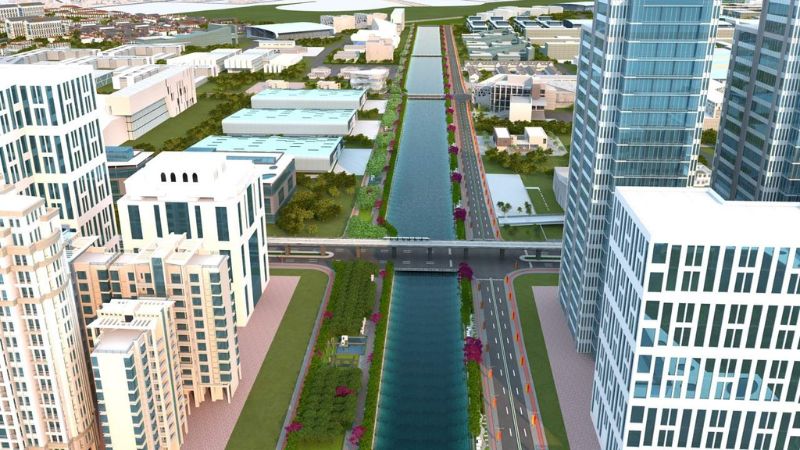The Dholera Special Investment Region (SIR) in the state of Gujarat has gained prominence due to its approach to urban administrative systems. Dholera SIR is to provide in one site information, technologies, and governance systems thought appropriate for future cities. This upcoming smart new city features seamless integration of urban planning, modern technology, and effective governance practices. The region is set to change the landscape of cities owing to the fact that the region adopts smart governance practices that are bound to act as a bedrock for the transformation.

Dholera Urban Planning: Integration and Management
Contents
A notable aspect of smart governance in dholera is the integrated urban planning system. The integration starts by building the city with the aim to achieve effective and organized structures. Everything from housing to industry to trade and services is planned in advance to ensure the best use of space and ideal point-to-point connections. The use of Geographic Information Systems (GIS) permits the mapping of a city’s physical assets which enables the timely supervision of utility, transport, and other urban service systems.
Utilizing this technology enables the city to effectively allocate resources and react swiftly to challenges like traffic flow, sanitation, and energy consumption. Consequently, the insights generated from the data allow the service authorities to enhance the delivery of services while improving the conservation of the environment.
E-Governance and Digital Platforms
In the Dholera governance model, the use of e-governance strategies is significantly pronounced. The interaction of the communities and businesses with local centers of government is simplified by the availability of online platforms for civil services, business permits and application processes. Features such as payment of bills, licensing, and filing of complaints and their response can now be done from any location, thus facilitating effective interaction with local governance structures.
Integrating digital services also encourages the public to participate more actively by submitting suggestions, lodging complaints, and keeping track of governance activities. The increasing use of mobile applications and other digital tools enhances interaction between the authorities and the people, increases accountability, and decreases delays in service provision.
Sustainability and Environmental Management
A first approach to this governance paradigm relates to sustainability which is also constructed in the context of city smart governance. Dholera Smart City adopts eco-friendly infrastructure, including renewable energy solutions such as solar power, energy-efficient buildings, and waste-to-energy projects. Implementation of smart water and electricity meters helps to reduce resource consumption and also includes green areas in urban areas, which supports a more pleasant environment.
The city’s waste management system employs technologies to automate collection, segregation, and recycling processes in order to minimize adverse effects on the environment. With such an agenda, the city is not only seeking to become a model of urban development but also has a wider national objective of contributing to India’s vision of promoting sustainable practices.
Public Safety and Security in Dholera
A further aspect of smart governance that stands out deserves specific mention along with the accountability aspect. The city has sophisticated smart controlled video cameras and sensors for the monitoring of the traffic, public spaces, and other requisites of the city space. Such a technology overcomes time lags in responding to emergencies, accidents and crimes, thereby guaranteeing safety for residents and visitors.
Also, the region has reduced traffic congestion and has managed to ensure the smart traffic management systems in the region which have enhanced the improved security on the roads and provided optimized routes for public transport. Further improvement in traffic mobility has been achieved through real-time data in traffic.
Conclusion
This type of smart governance in this upcoming region is the benchmark of urbanization in India. The entire region serves as a template for building smart cities in the country by interweaving state-of-the-art technologies, putting emphasis on the factors of sustainability, and deepening the scope of accountability. The city’s governance’s key attributes such as e-governing platforms and smart infrastructure help the City attain the status of an integrated centre of smart urban development and management. This region is likely to draw investments, enhance the quality of life of people, and contribute towards India’s aim of a better more advanced nation as it continues to evolve.

